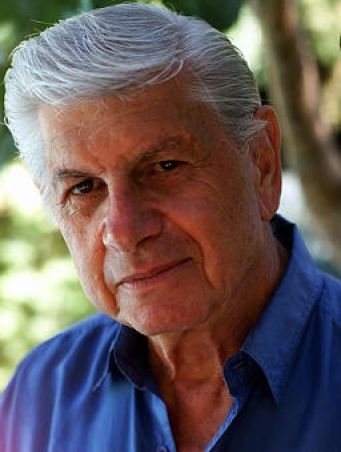
Biography
Recording engineer Larry Levine committed to tape producer Phil Spector's grandiose sonic vision to create some of the most influential and enduring pop singles ever made. Born May 8, 1928 in New York City and raised in Los Angeles, Levine served in the U.S. Army during the Korean War--after returning stateside, he went to work at his cousin Stan Ross' fledgling Hollywood studio Gold Star, learning the intricacies of recording technology on the job. By the time Gold Star opened a second studio room in 1956, Levine was in full command of the mixing board's possibilities, helming a series of sessions for rockabilly icon Eddie Cochran that yielded classics including "Summertime Blues," "Twenty Flight Rock" and "C'mon Everybody." Levine first met Spector in 1958, when the 18-year-old wunderkind entered Gold Star as a member of the Teddy Bears to record the chart-topping ballad "To Know Him Is to Love Him"--although Ross engineered the session in question, Levine stepped in when Spector returned to the studio in July 1962 to produce "He's a Rebel," the third single by his up-and-coming girl group the Crystals. The record hit number one, and after reuniting with Spector three weeks later on the follow-up, Bob B. Soxx and the Blue Jeans' "Zip-A-Dee-Doo-Dah," Levine was officially installed as the producer's engineer of choice.
Working in Gold Star's now-legendary Studio A, a space renowned for its exceptionally resonant echo chambers, Levine brought clarity and cohesion to Spector's larger-than-life Wall of Sound, couching acts like the Ronettes and the Righteous Brothers in potently symphonic pop music sculpted from multiple guitars, pianos, brass, percussion and myriad other instruments. Paired with arranger Jack Nitzsche and the first-call session musicians later known as the Wrecking Crew--among them drummers Hal Blaine and Earl Palmer, guitarists Barney Kessel, Tommy Tedesco and Bill Strange, bassists Carol Kaye and Larry Knechtel, and pianist Leon Russell--Levine was both sounding board and translator for Spector, making concrete the producer's most daring and original ideas. "Phil wanted everything mono but he'd keep turning the volume up in the control room," Levine later explained. "So, what I did was record the same thing on two of the [Ampex machine's] three tracks just to reinforce the sound, and then I would erase one of those and replace it with the voice." The resulting music speaks for itself: Singles like the Crystals' "Da Doo Ron Ron," the Ronettes' "Be My Baby" and the Righteous Brothers' "You've Lost That Lovin' Feelin" elevated rock and roll into the realm of art. "[Levine] made Phil Spector a genius by applying the simple logic of using echo," Stan Ross later proclaimed. "I showed him how you work this echo chamber thing and he got into it and sure enough it worked?It gave [the music] dimension. It sounded like it was a football field."
Levine's Gold Star efforts extended far beyond the Spector sphere: In 1965, he won his lone Grammy Award when Herb Alpert and the Tijuana Brass' "A Taste of Honey" was named Best Engineered Recording alongside its Record of the Year and Best Pop Arrangement honors. So critical was Levine to Alpert's Latin jazz sound that he was informally recognized as the eighth member of the Tijuana Brass--when Alpert and Jerry Moss began construction on a new Hollywood recording studio for their A&M Records label, they hired Levine to oversee the project in an effort to recreate Gold Star's signature acoustics. He also engineered the Beach Boys' landmark album Pet Sounds, a recording heavily indebted to Spector's genius. Levine remained inextricably tied to Spector throughout his career, even after the producer's pop empire crumbled in the wake of Ike and Tina Turner's 1966 single "River Deep, Mountain High," both a creative zenith and a resounding commercial failure: Levine later resurfaced on Spector-produced sessions including Leonard Cohen's 1977 LP Death of a Ladies' Man and the Ramones' 1980 effort End of the Century. Levine and Spector also reunited to digitally remaster their classic Gold Star-era collaborations for the 1991 box set Back to Mono. Levine died in his sleep at his Encino, California home on May 8, 2008, his 80th birthday.
~ Jason Ankeny, All Music Guide
Webmaster: Jos Megroedt | Website: http://www.josmegroedt.com/ |
This site is hosted by: http://www.hostingphotography.com/

